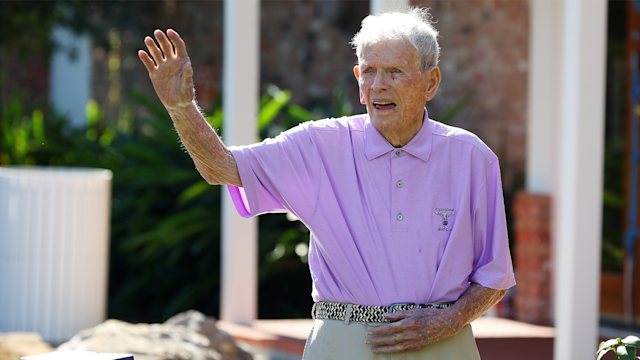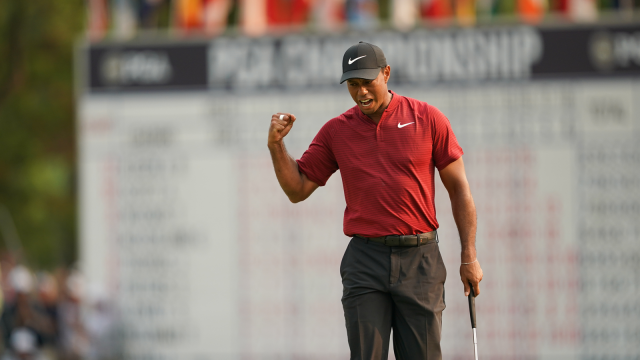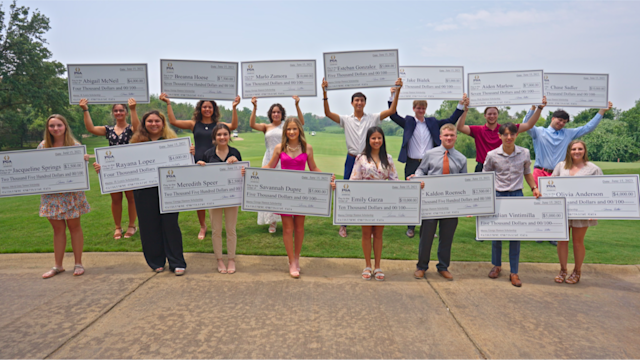Game Changers
Remembering Jack Burke Jr. : 'There Will Never Be Another One Like Him'
By Art Stricklin
Published on
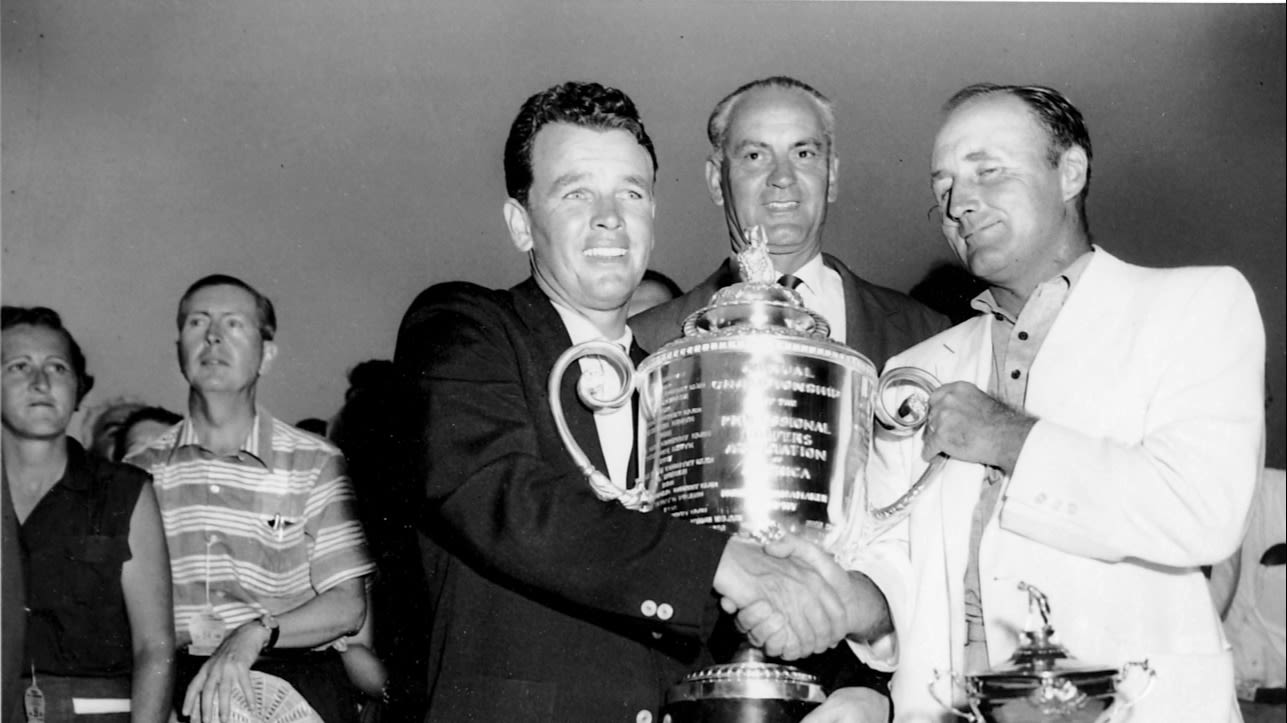
Burke Jr. receives the Wanamaker Trophy after winning the 1956 PGA Championship.
For more than 100 years, the PGA of America and its more than 30,000 members have worked to grow the game, but perhaps nobody embraced that mission stronger or longer than former PGA Champion, Ryder Cup player, Captain and Vice Captain and club founder Jack Burke Jr., who passed away at the age of 100 last year on Jan 19.
"I first met him when I was 13 years old. He was a wonderful man and I loved him in so many ways," says World Golf Hall of Fame member and fellow Texan Ben Crenshaw. "But it’s true when people say . . . there was nobody like Jackie Burke."
A Texas native whose father Jack Burke, Sr., one of the first PGA of America professionals in the Lone Star State in the early 20th century, Burke, Jr. first cut his playing teeth as a successful professional competitor. He won both the PGA Championship, defeating Ted Kroll in the final 3&2 at Blue Hill Country Club outside Boston, and the Masters title in 1956.
He was a five-time U.S. Ryder Cup team member, served as a Ryder Cup Captain in 1957 & '73 and a Vice Captain to good friend Hal Sutton at age 81 in 2004. But his most lasting achievement may have been the founding of Champions Golf Club in Houston with good friend and fellow Masters Champion Jimmy Demaret in 1957.
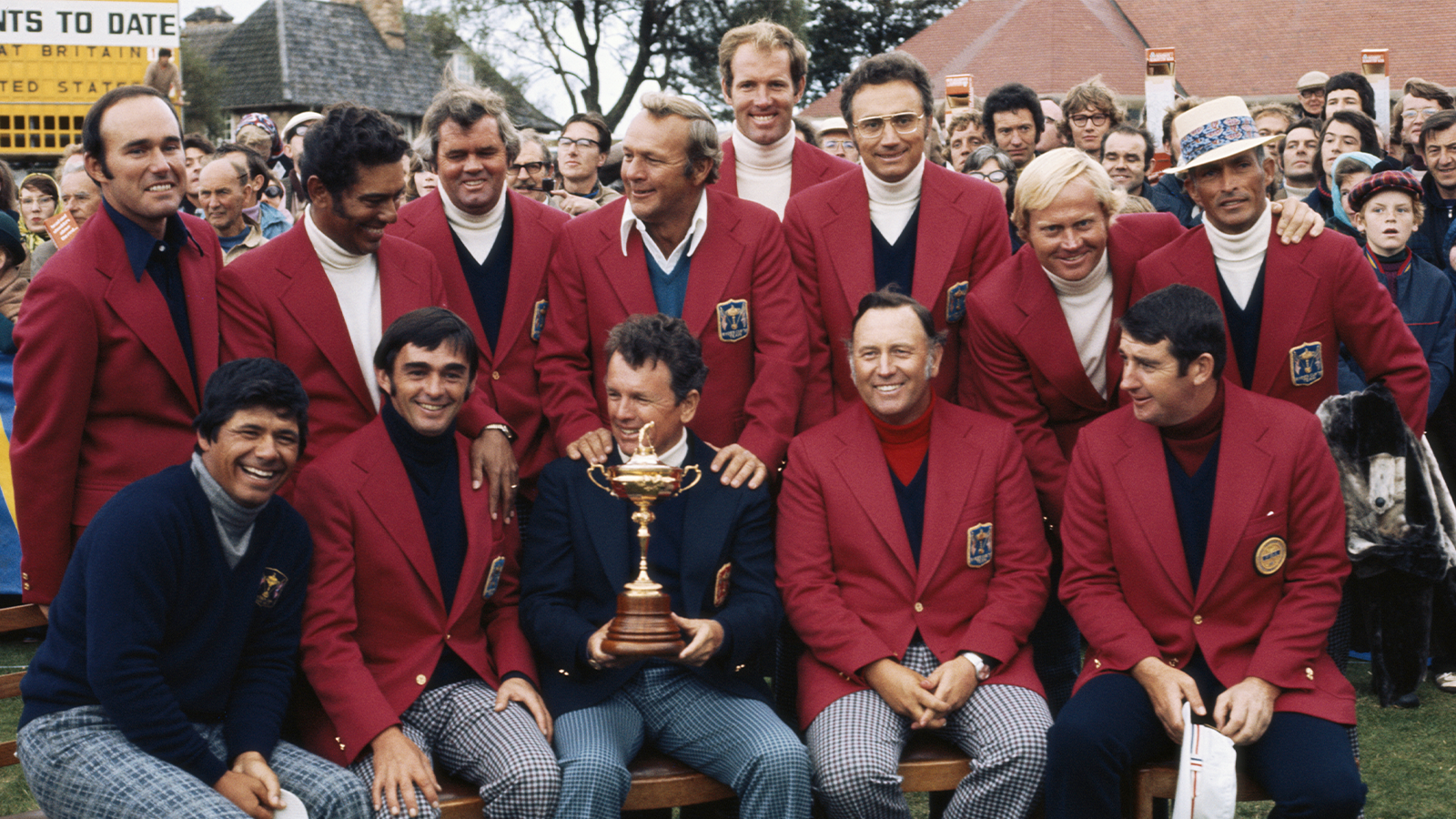
Getty Images
They built the private club in what was then a remote section of the southeast Texas city and grew it to only the second golf course in America to host the Ryder Cup, U.S. Open and Women’s U.S. Open, U.S. Amateur, Tour Championship and a PGA Tour event . . . with Burke on hand to see every shot.
“He helped bridge the gap between the old PGA of America when he first arrived in Texas and the modern PGA with what he did it Champions and, as such, gained a position of authority in golf few had,” said Crenshaw.
Burke gained a reputation as one of golf’s straightest shooters telling what he thought honestly when asked on any subject.
“He could be crusty on the outside, but underneath was really caring because he cared about you even when it hurt,” said Sutton, who met him at age 18 and considered him one of the greatest influences in his life. “He cared enough to tell you the truth and I always appreciated that. He loved competition in all forms and he loved to see others compete because he loved you.”
Robin Burke saw that first hand when she first came to Champions for lessons while still in college. Many years later, she married Burke after his first wife passed away, and served as a Curtis Cup Captain and co-chairman of the U.S. Women’s Open in 2020.
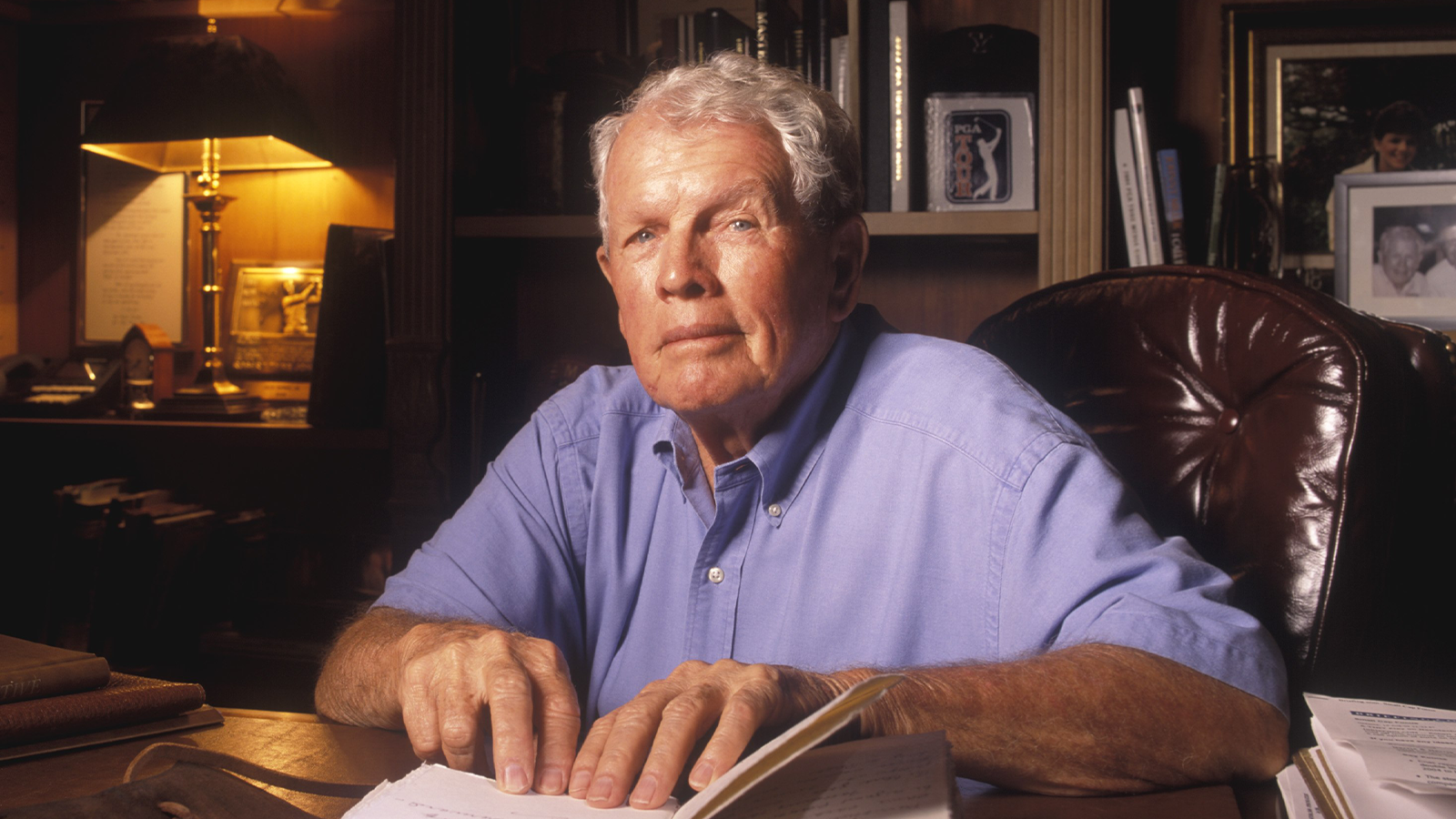
Getty Images
“Jack was a winner as a player, a club owner, a teacher, a PGA and Ryder Cup Champion, a mentor and leader," says Robin. "He would always say don’t walk past people, but try to help them. He would take himself out of the equation to try to help others. I think he transcended both eras of golf when PGA pros first started and the modern era of today.”
Former PGA CEO Seth Waugh said many people don’t recognize or remember that professional golfers were not a well-paid or often well-respected profession in the 1930 or ‘40s.
“He was there when professionals couldn’t make enough on the tour to earn a living, and had to come back and run the pro shop to have a steady job," says Waugh. "Jack Burke is the role model we want to carry forward of doing the hard work on the courses, fixing clubs, giving lessons, greeting members, working on swings. He had the ethics, values and foundations to make the golf game the rest of the world would envy. He carried the past forward to help the game become its modern version.”
Among the many sayings Burke was famous for, later known as “Burkisms,” was this gem: “You should never forget, 'golf pro' is short for promoter and that is what we should be doing for the game.”
When Crenshaw was named U.S. Ryder Cup Captain for the 1999 Ryder Cup matches at Brookline Country Club outside of Boston, he took plenty of advice from Burke for the biannual competition between the United States and Europe.
"He told me to be tough on those guys, but make sure they believed in themselves. They’re the greatest players in the world," remembers Crenshaw. "He loved the amateur game, but as a pro, the old marine came out in him and he was a feisty competitor. Truth be told, I think he thought we were all a little soft on the golf course."
"There will never be another one like him, because there will never be another one who transcended the eras in golf and cared about everyone."
Lee Trevino
But Burke wasn’t afraid to thrust the needle into a good friend as Crenshaw found out.
“After we won the Ryder Cup in Brookline, I came down to Champions and wanted to tell Jackie all about it," says Crenshaw. "I saw him on the sidewalk in front of his office and the first thing he said was, ‘Ben, if you ever found a church, I want to be your first member because what you did in Brookline was the greatest miracle since the five loafs and two fishes in the Bible.’ He got me, but that was the way he was.”
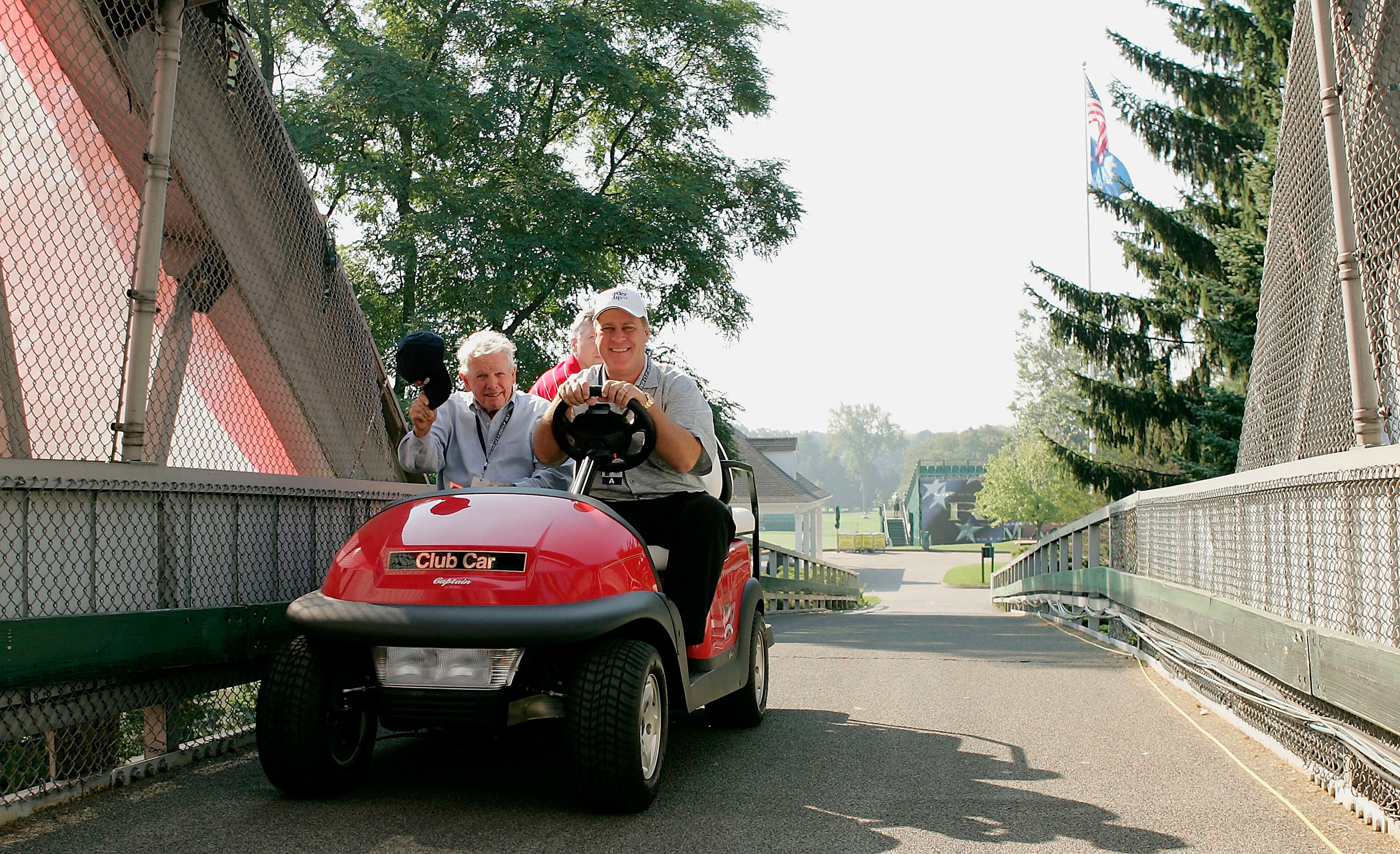
Burke Jr. and Sutton at the 2004 Ryder Cup.
Sutton used Burke’s tough love as motivation in his own career.
“I was at Boot Ranch in Fredericksburg working on building the course, and had really quit golf for 4-5 years and was pretty discouraged," says Sutton. "He called me on the phone and said, 'I’ll meet you on the practice range tomorrow at 10 a.m.' I told him I didn’t really play much golf any more. He said again, 'I’ll meet you at 10 a.m.'
“When he arrived, he said you’re a PGA Champion, a Ryder Cup winner . . . what would you charge to import that into somebody else? I told him I didn’t know, but he persisted, so I said maybe $5 to $10 million. Then he added, ‘Why would you throw away something so cavalierly for what you’ve done?' That really stung me and I dedicated myself to the game again.”
Lee Trevino is one of the many pros who came to Burke for help and advice. What he remembers perhaps sums up Burke best.
"He was from the old school when a pro did it all to help members and anybody else with the game," says Trevino. "I was giving a clinic the other day and remembered something he told me about being ready for every shot.
"There will never be another one like him, because there will never be another one who transcended the eras in golf and cared about everyone."
